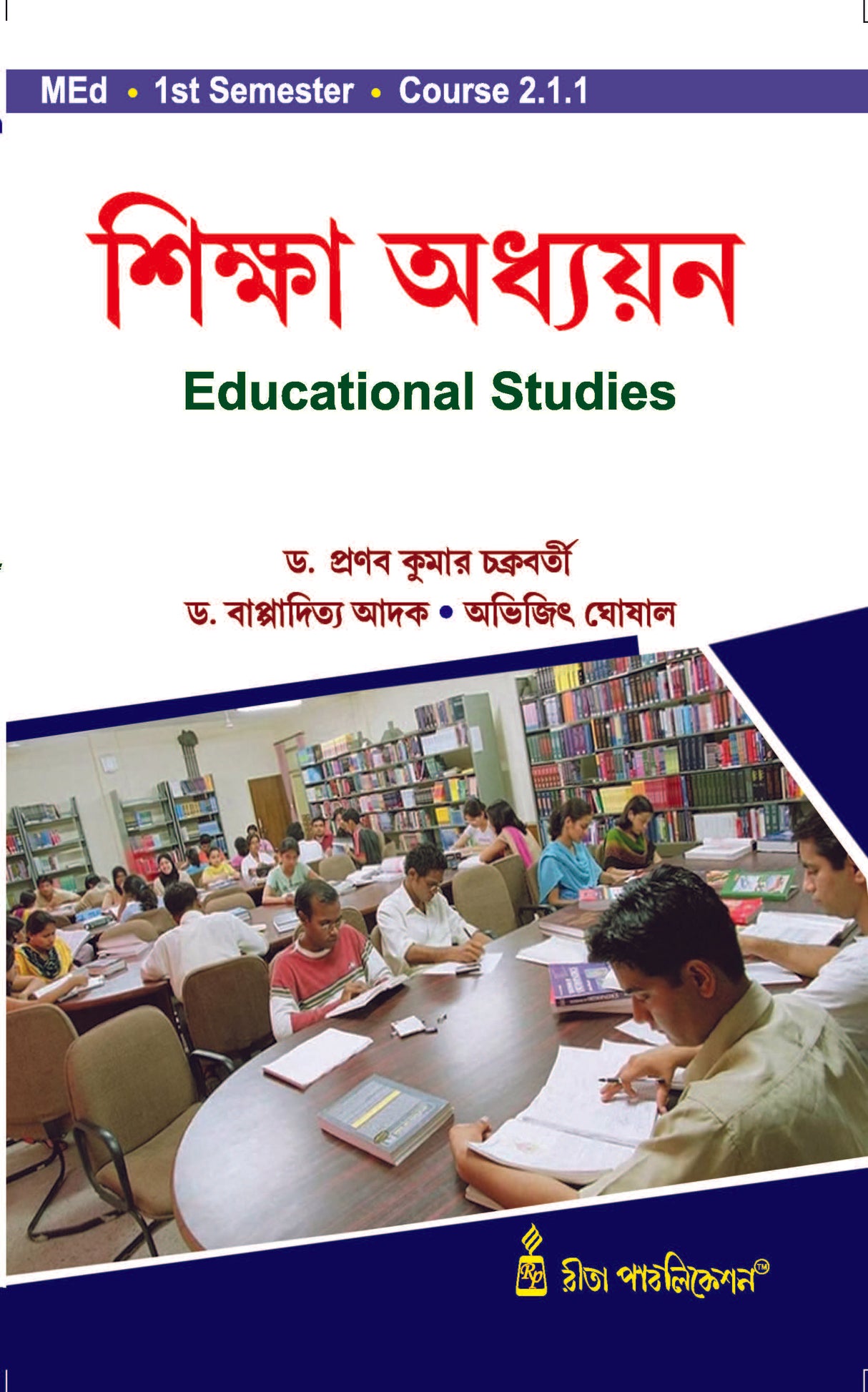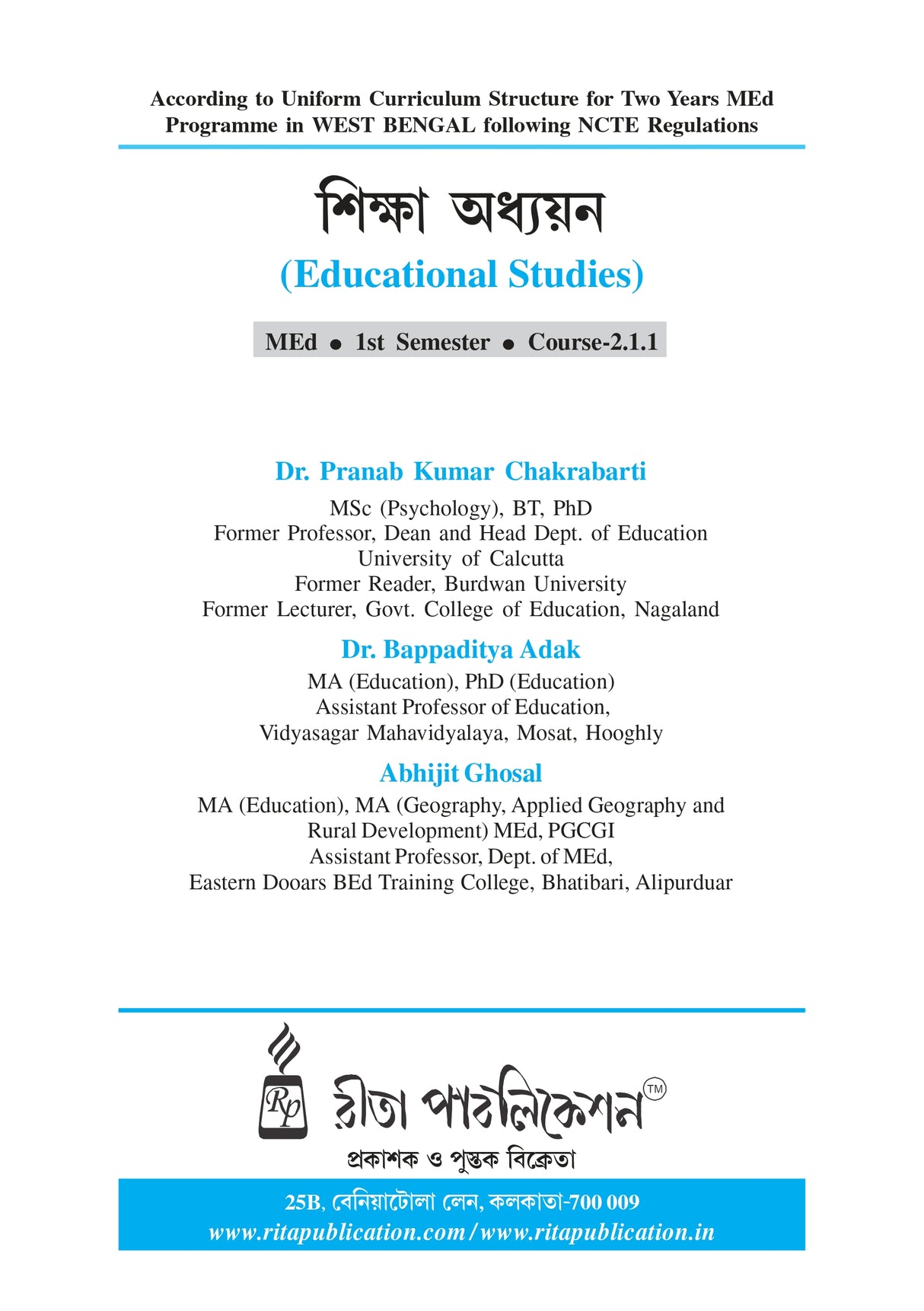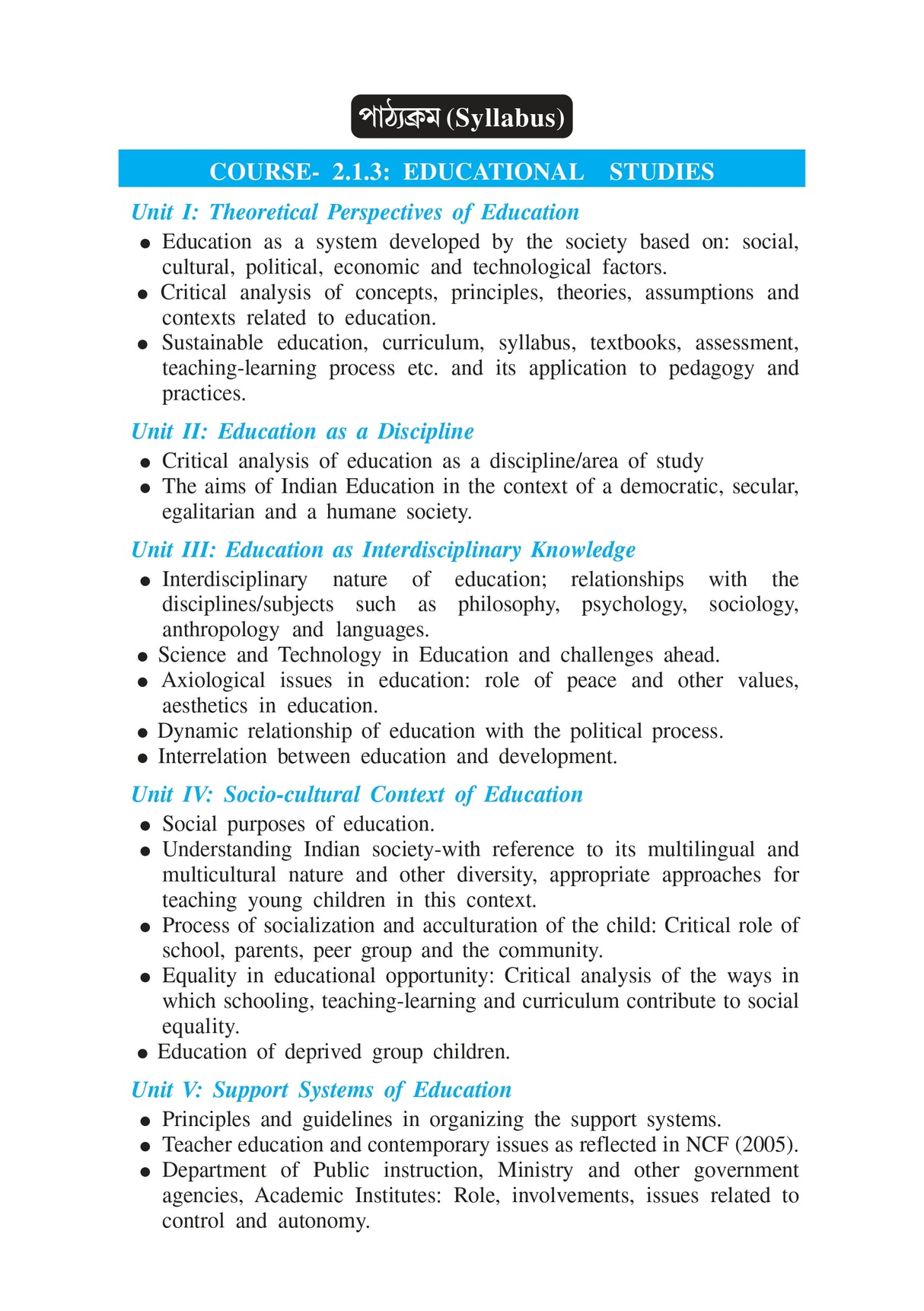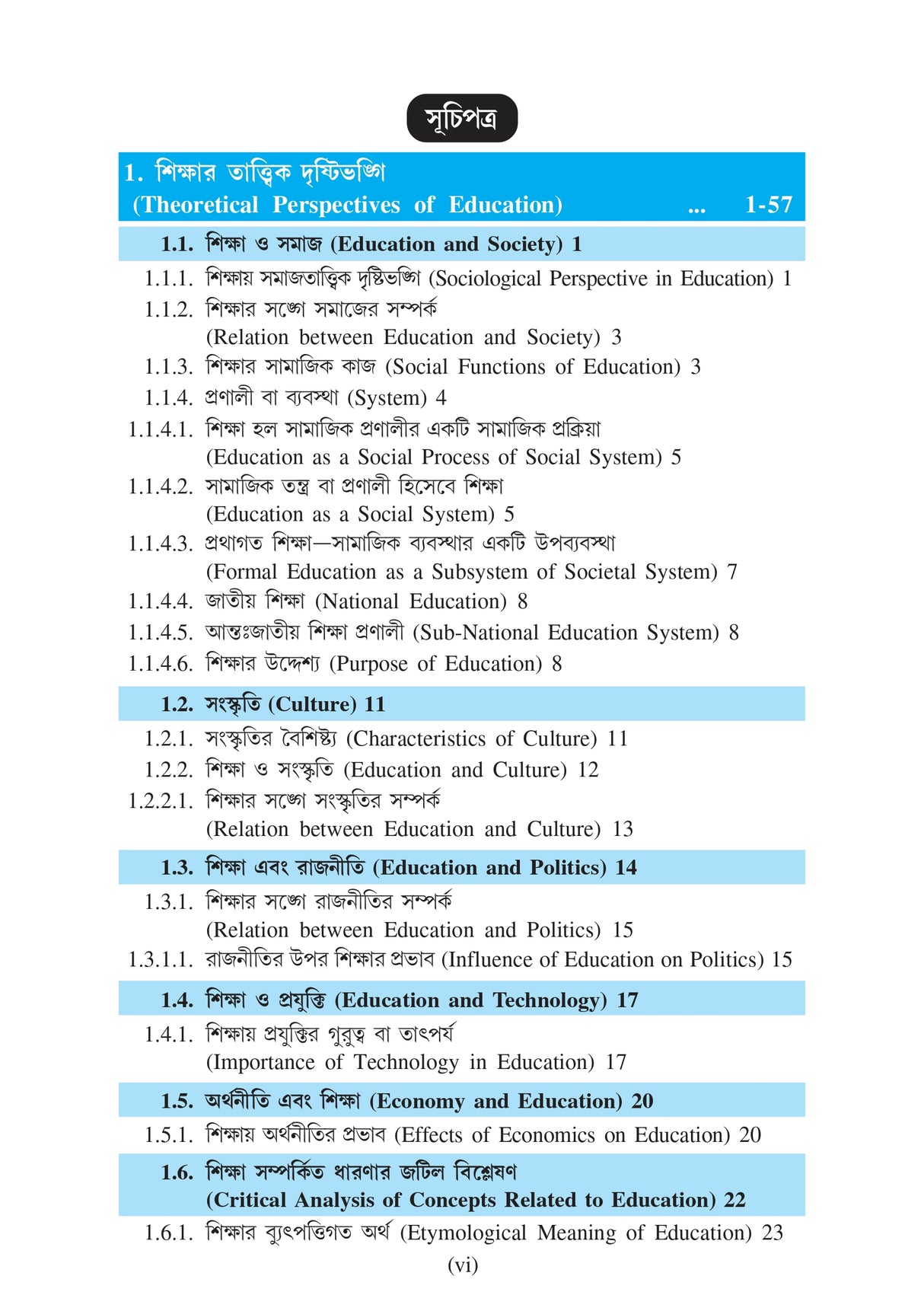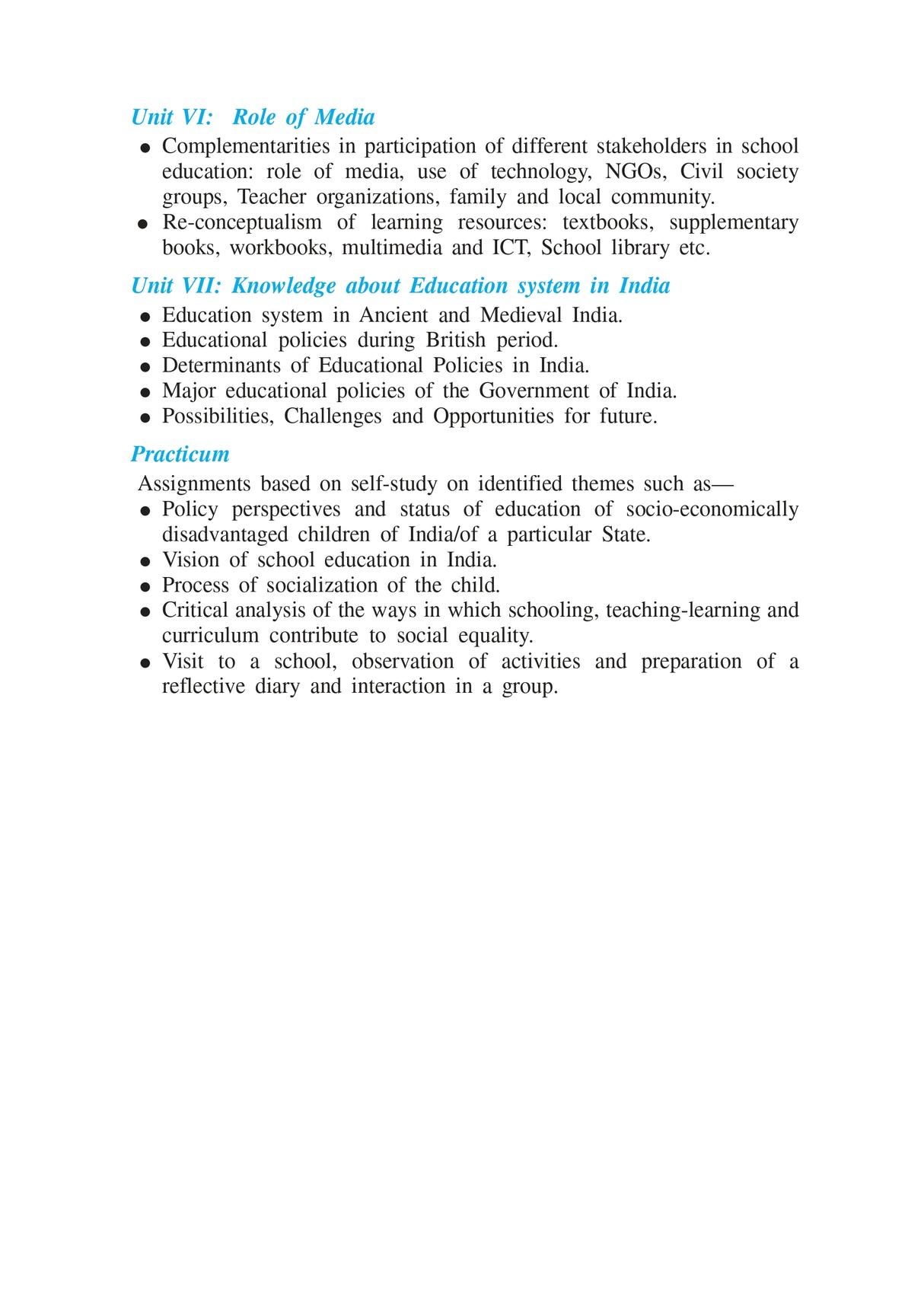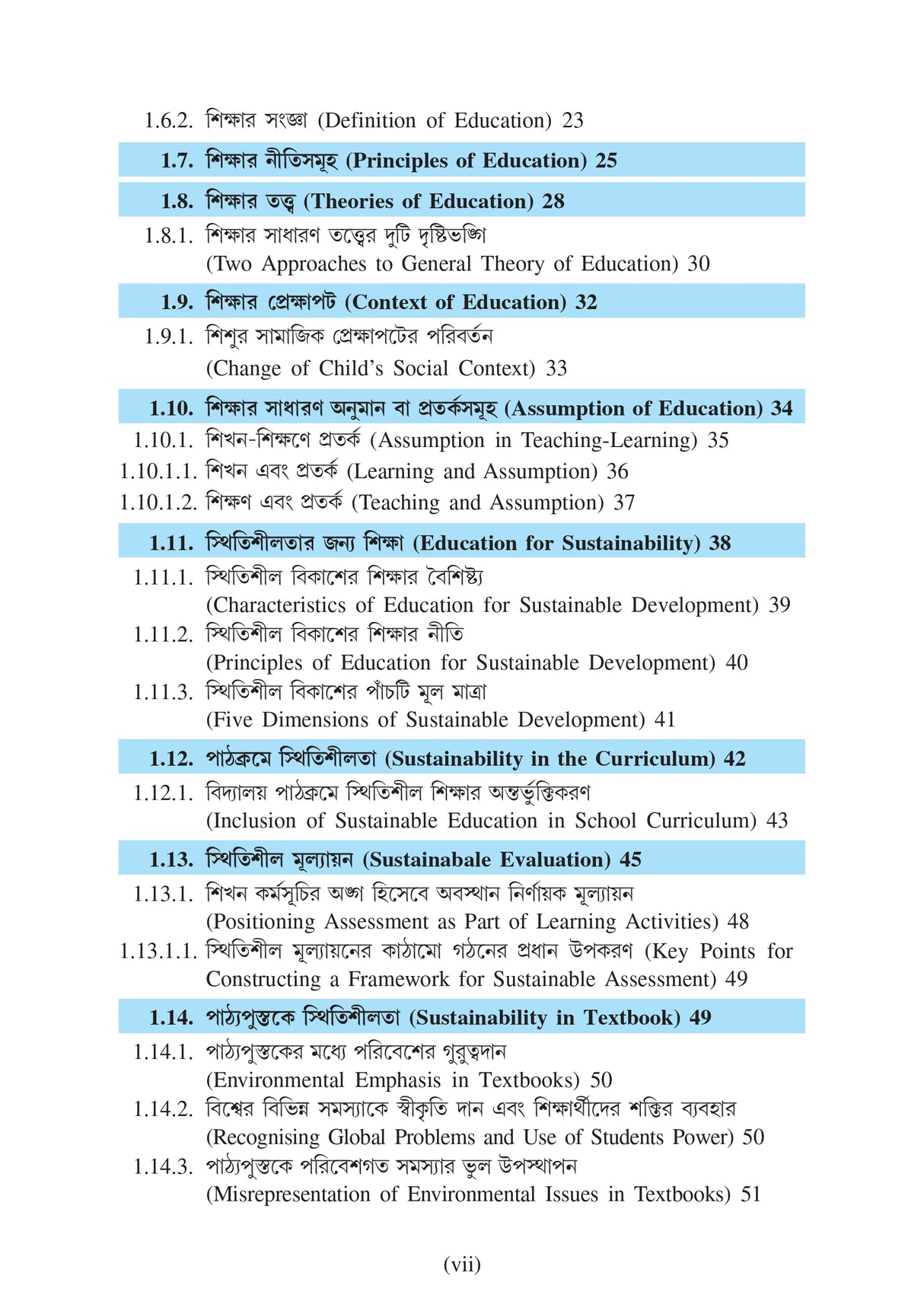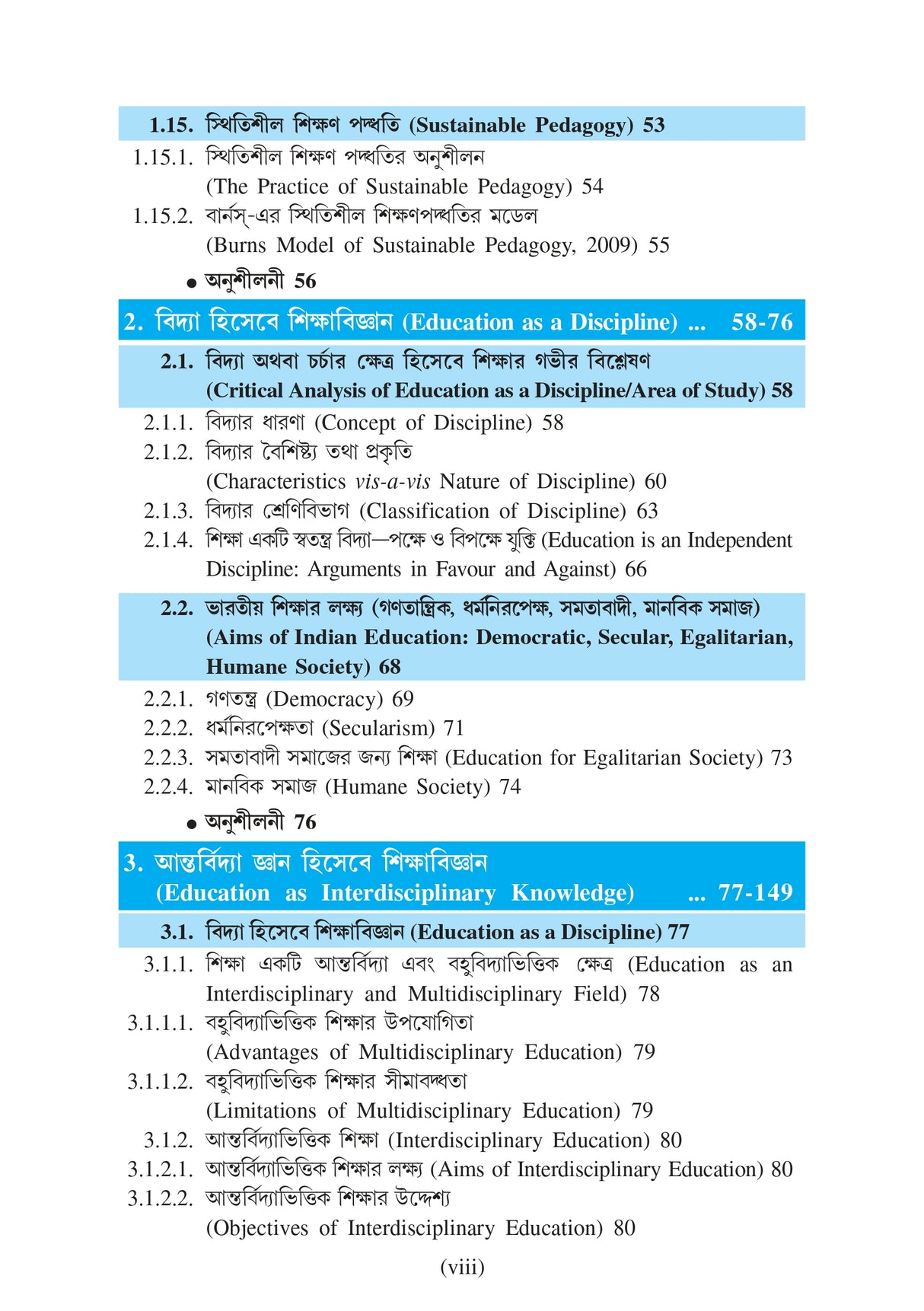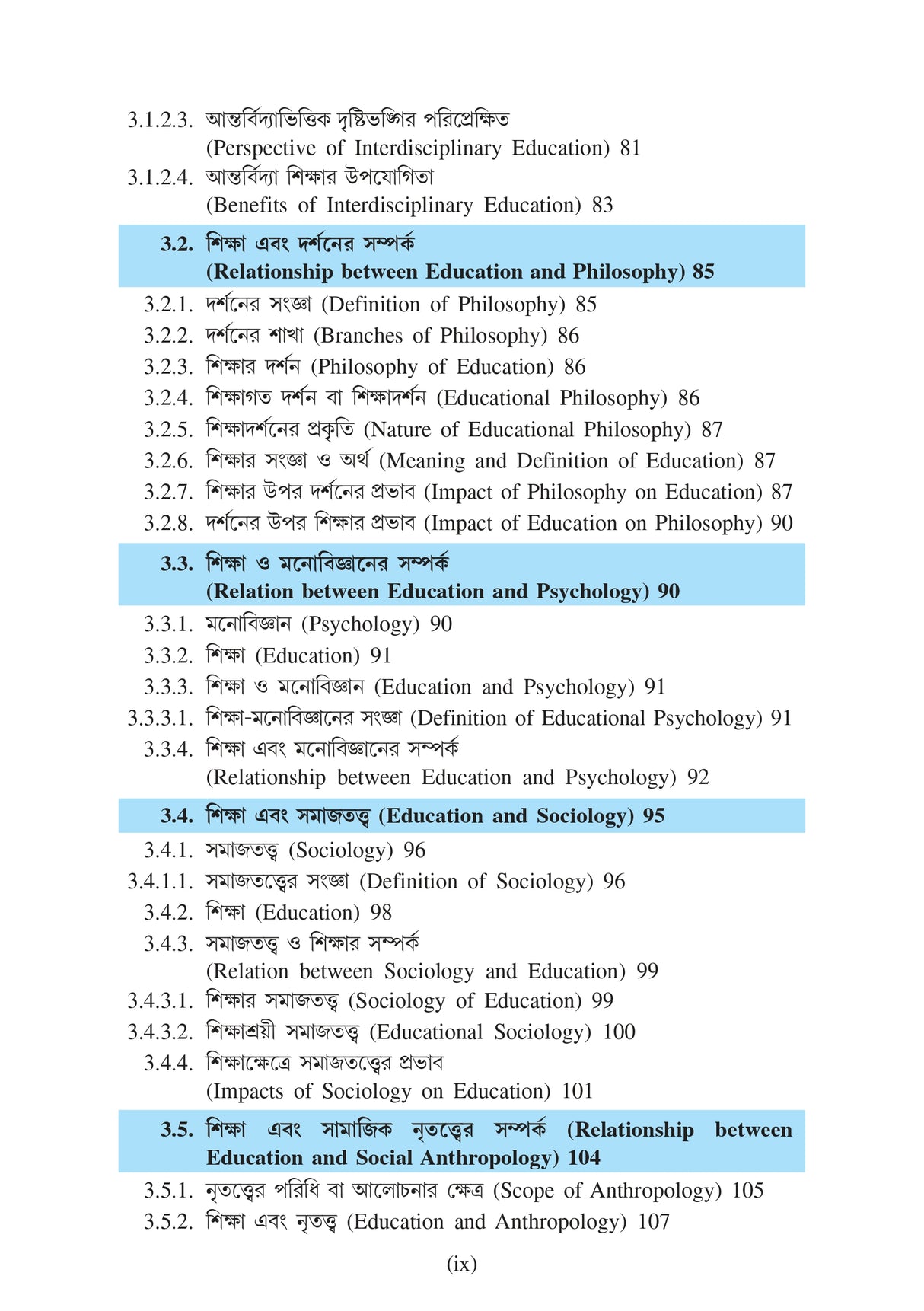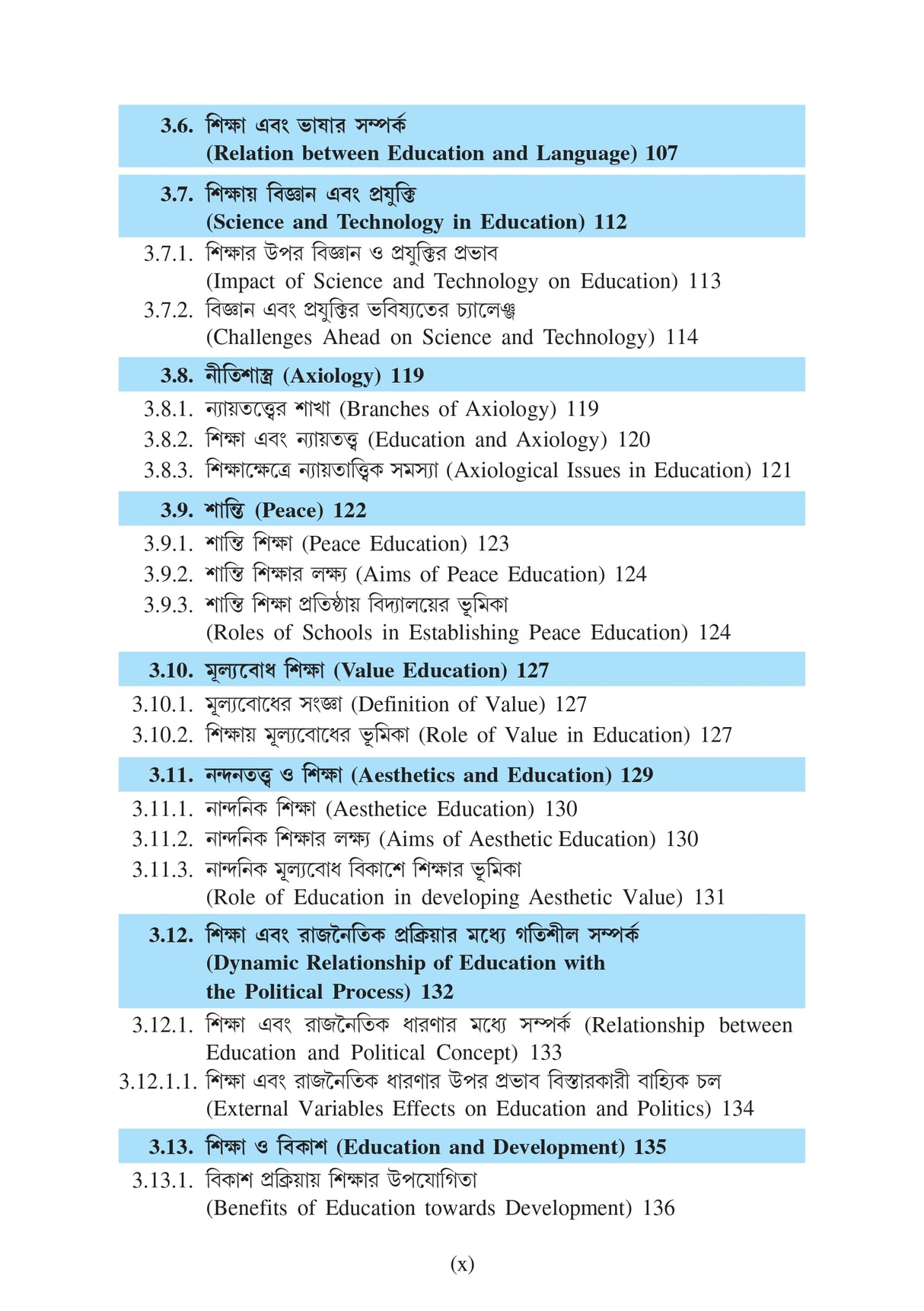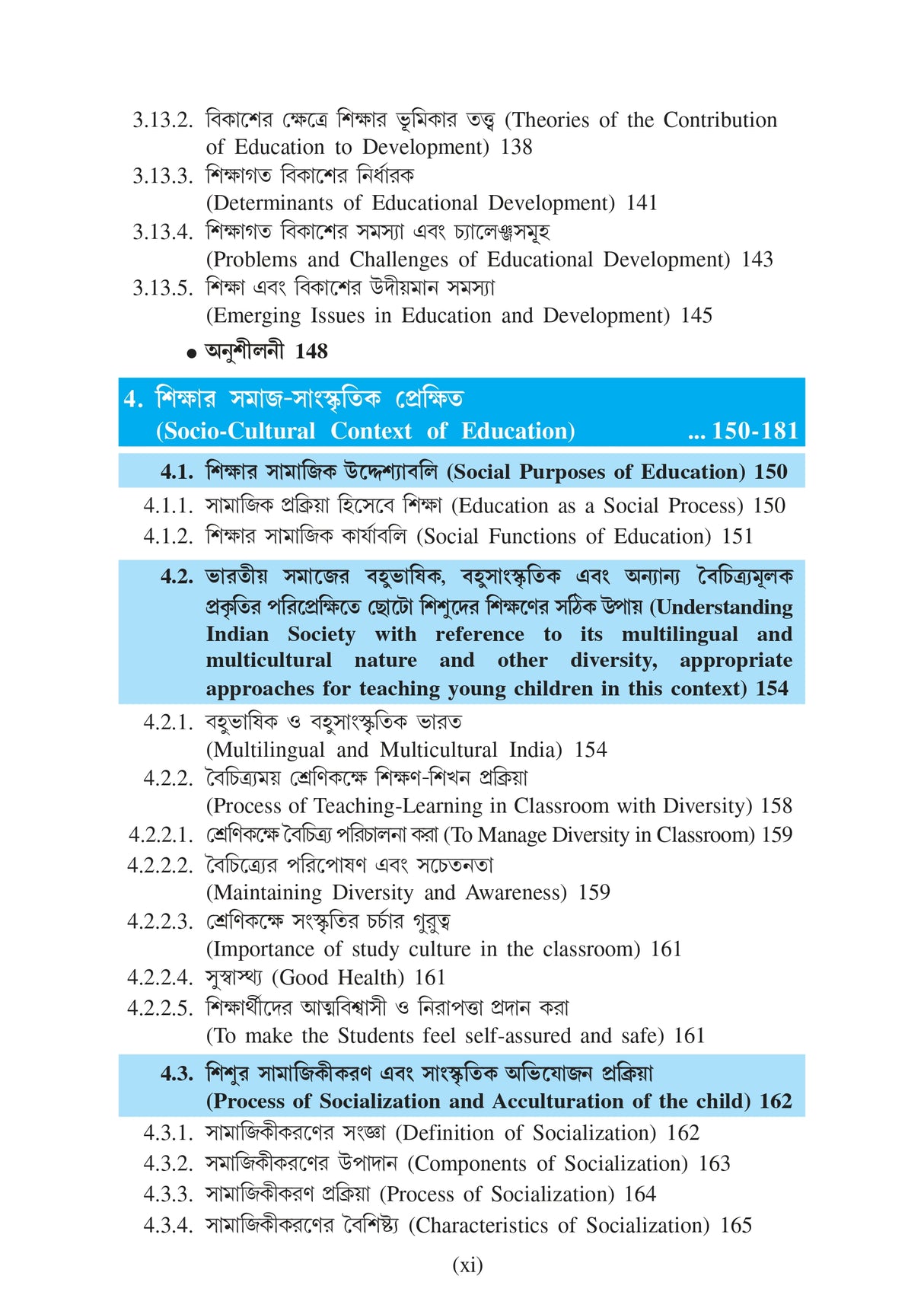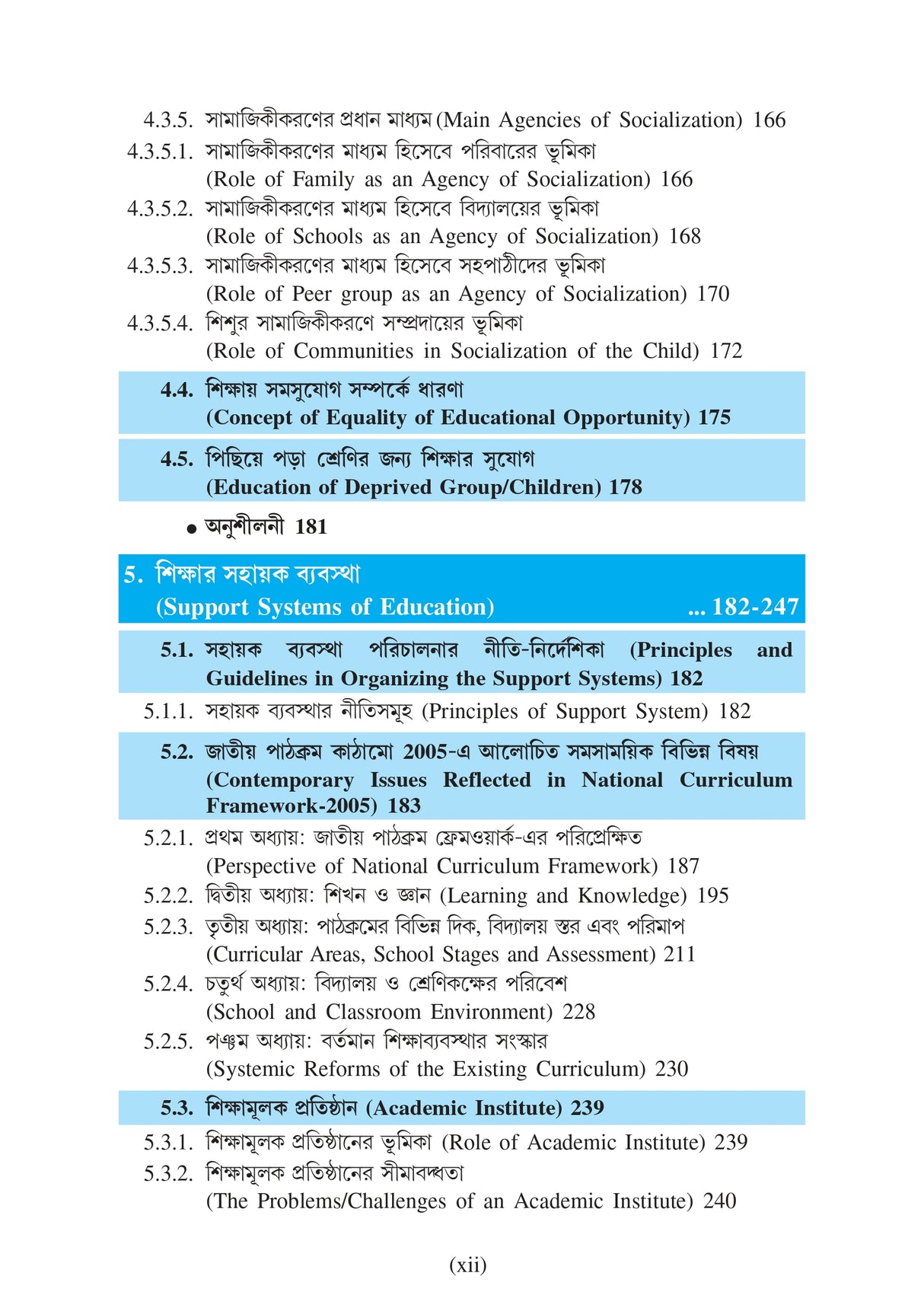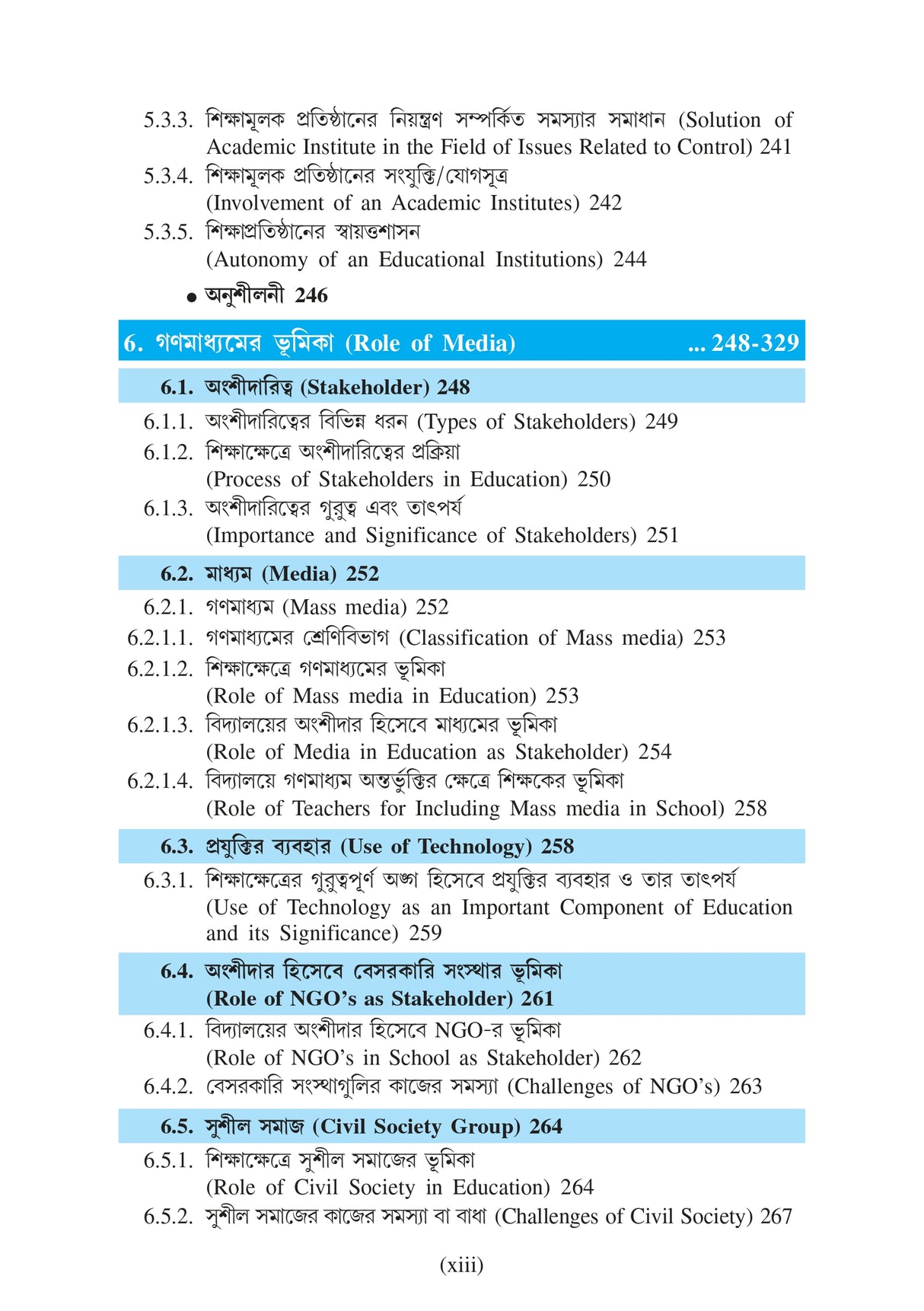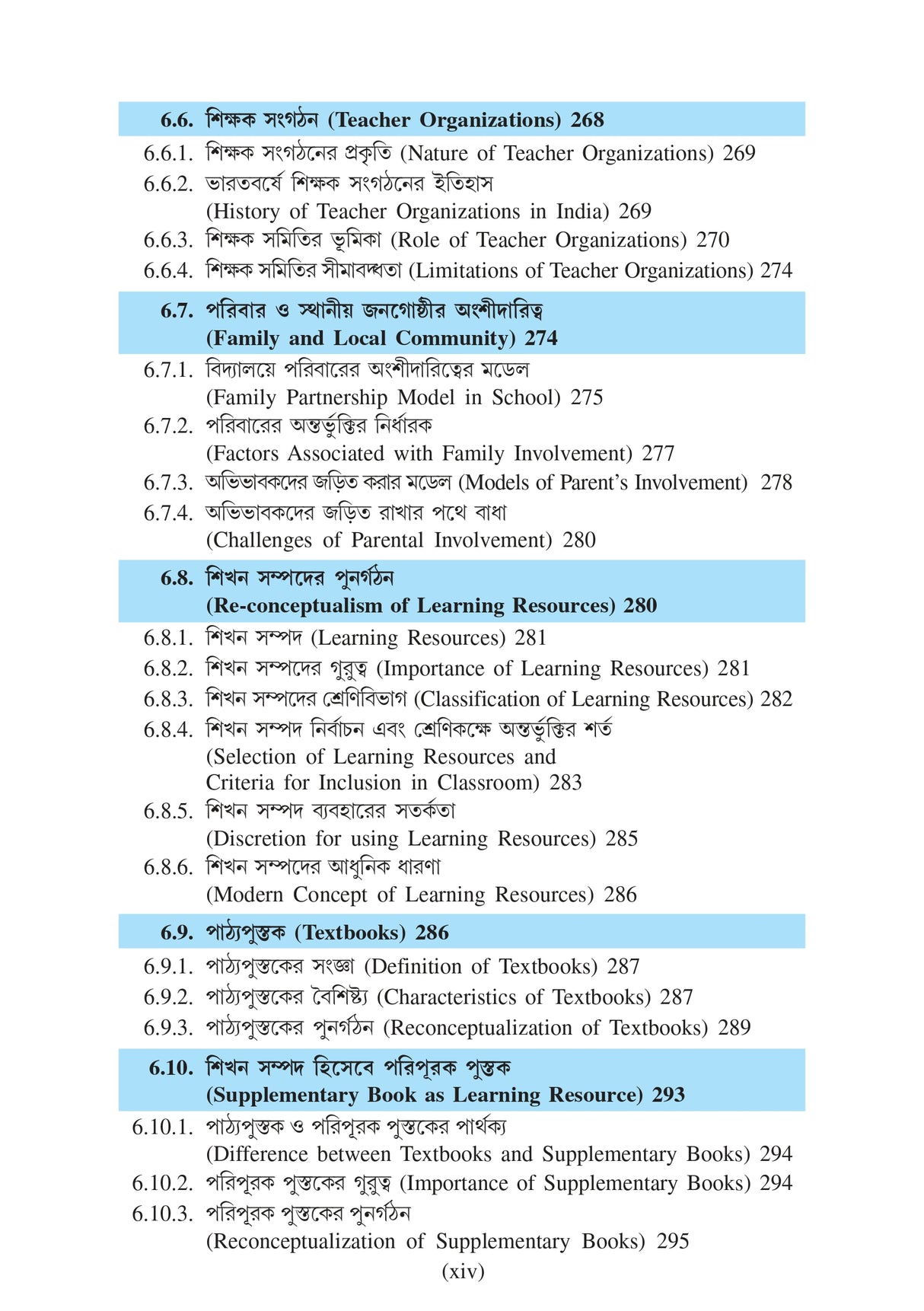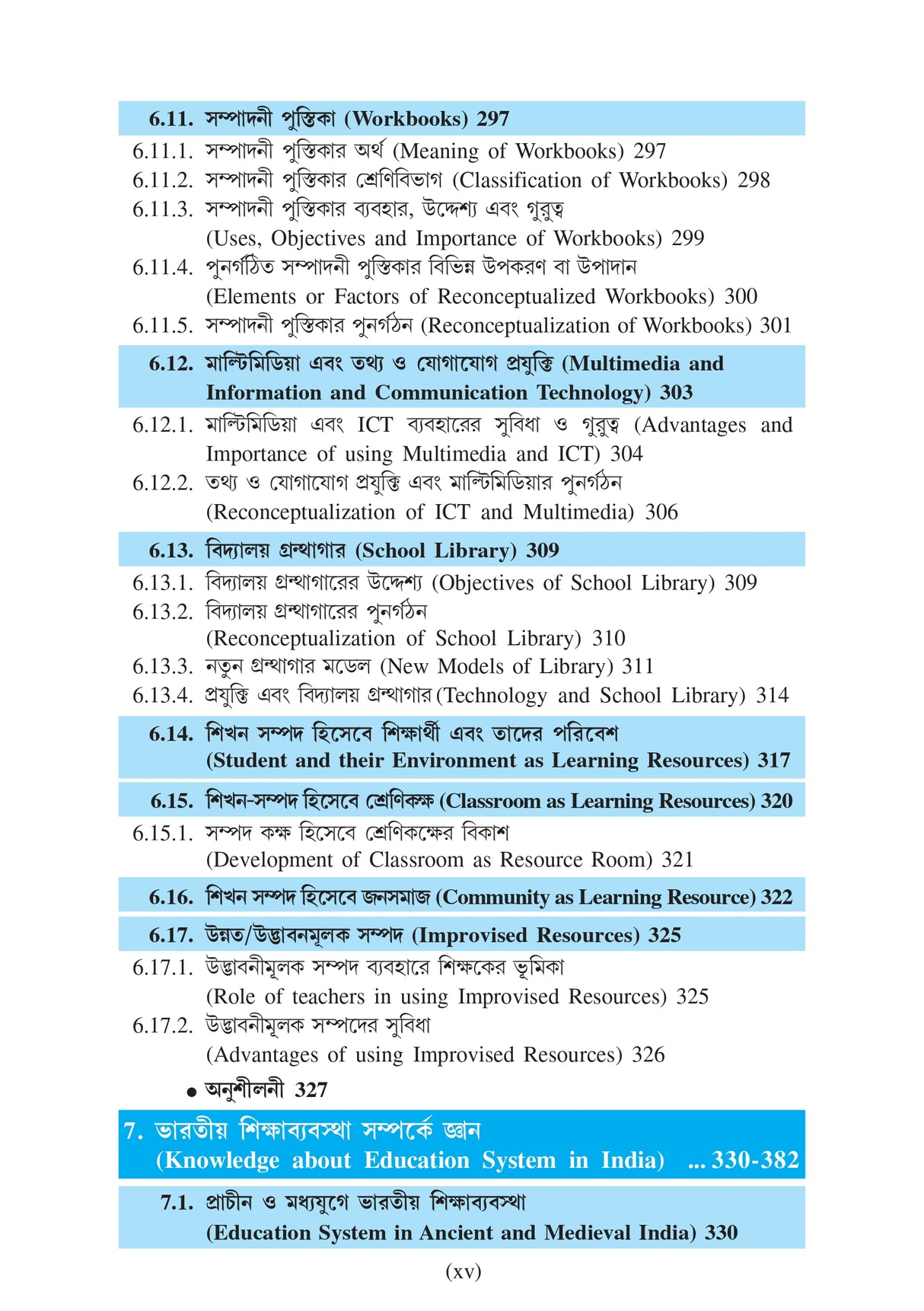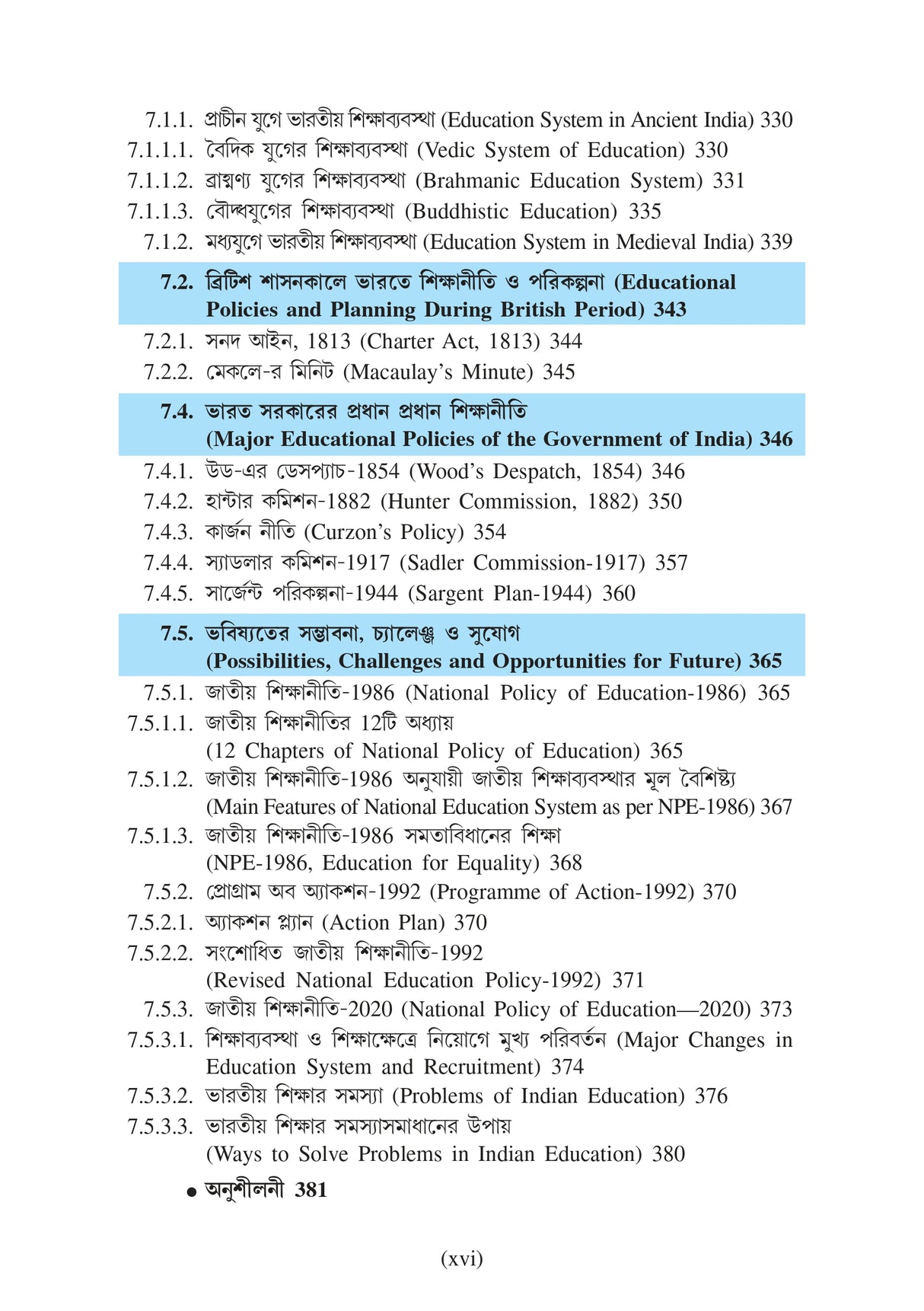Course-2.1.1_Siksha Adhyayan (Educational Studies)_MEd
Course-2.1.1_Siksha Adhyayan (Educational Studies)_MEd is backordered and will ship as soon as it is back in stock.
Couldn't load pickup availability
Genuine Products Guarantee
Genuine Products Guarantee
We guarantee 100% genuine products, and if proven otherwise, we will compensate you with 10 times the product's cost.
Delivery and Shipping
Delivery and Shipping
Products are generally ready for dispatch within 1 day and typically reach you in 3 to 5 days.
Authors: Dr. Pranab Kumar Chakrabarti, Dr. Bappaditya Adak, Abhijit Ghosal
Course- 2.1.3: Educational Studies
Unit I: Theoretical Perspectives of Education
l Education as a system developed by the society based on: social, cultural, political, economic and technological factors.
l Critical analysis of concepts, principles, theories, assumptions and contexts related to education.
l Sustainable education, curriculum, syllabus, textbooks, assessment, teaching-learning process etc. and its application to pedagogy and practices.
Unit II: Education as a Discipline
l Critical analysis of education as a discipline/area of study
l The aims of Indian Education in the context of a democratic, secular, egalitarian and a humane society.
Unit III: Education as Interdisciplinary Knowledge
l Interdisciplinary nature of education; relationships with the disciplines/subjects such as philosophy, psychology, sociology, anthropology and languages.
l Science and Technology in Education and challenges ahead.
l Axiological issues in education: role of peace and other values, aesthetics in education.
l Dynamic relationship of education with the political process.
l Interrelation between education and development.
Unit IV: Socio-cultural Context of Education
l Social purposes of education.
l Understanding Indian society-with reference to its multilingual and multicultural nature and other diversity, appropriate approaches for teaching young children in this context.
l Process of socialization and acculturation of the child: Critical role of school, parents, peer group and the community.
l Equality in educational opportunity: Critical analysis of the ways in which schooling, teaching-learning and curriculum contribute to social equality.
l Education of deprived group children.
Unit V: Support Systems of Education
l Principles and guidelines in organizing the support systems.
l Teacher education and contemporary issues as reflected in NCF (2005).
l Department of Public instruction, Ministry and other government agencies, Academic Institutes: Role, involvements, issues related to control and autonomy.
Unit VI: Role of Media
l Complementarities in participation of different stakeholders in school education: role of media, use of technology, NGOs, Civil society groups, Teacher organizations, family and local community.
l Re-conceptualism of learning resources: textbooks, supplementary books, workbooks, multimedia and ICT, School library etc.
Unit VII: Knowledge about Education system in India
l Education system in Ancient and Medieval India.
l Educational policies during British period.
l Determinants of Educational Policies in India.
l Major educational policies of the Government of India.
l Possibilities, Challenges and Opportunities for future.
Practicum
Assignments based on self-study on identified themes such as—
l Policy perspectives and status of education of socio-economically disadvantaged children of India/of a particular State.
l Vision of school education in India.
l Process of socialization of the child.
l Critical analysis of the ways in which schooling, teaching-learning and curriculum contribute to social equality.
l Visit to a school, observation of activities and preparation of a reflective diary and interaction in a group.

